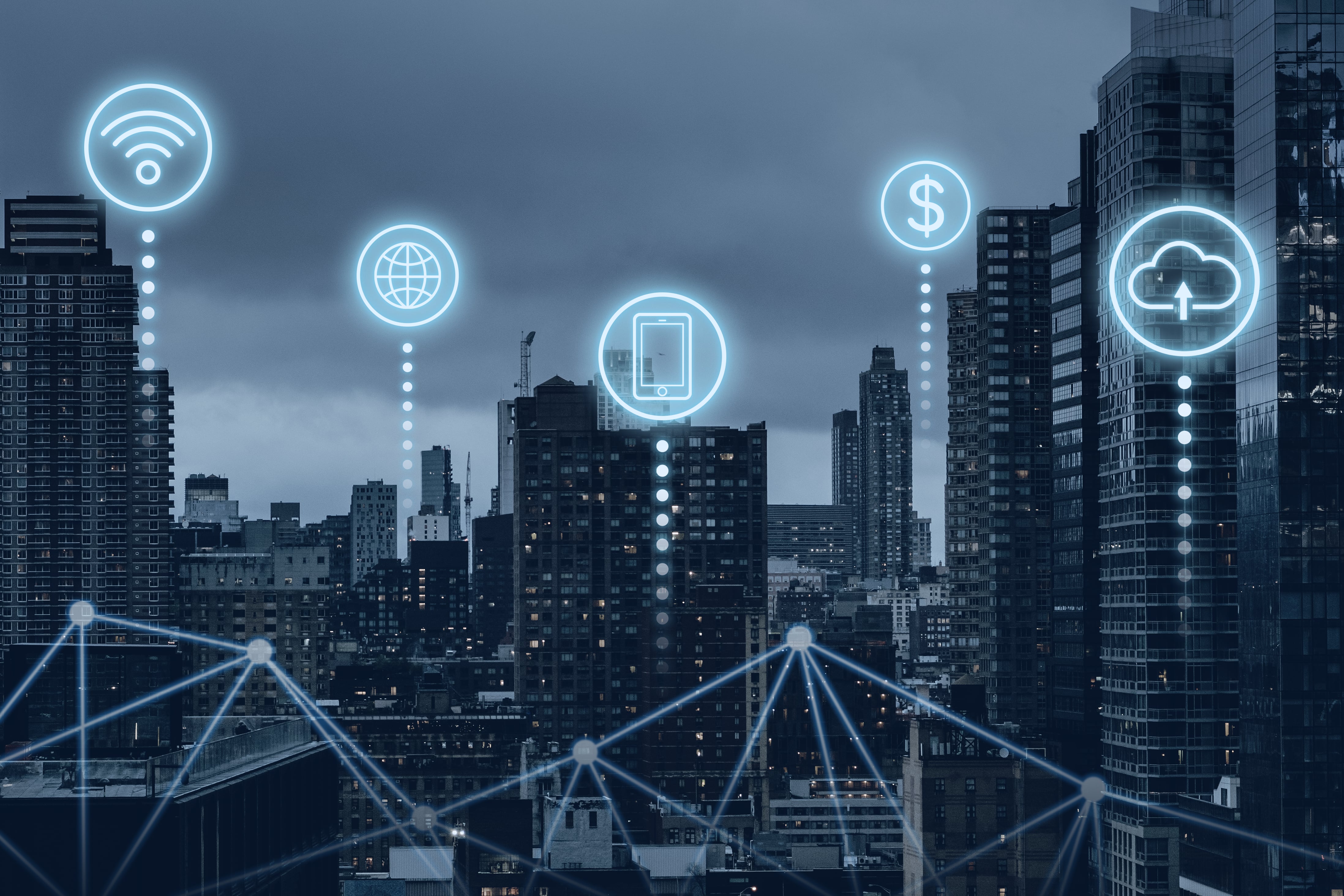The significant changes occurring in Indonesia create both business opportunities and challenges. Companies must observe these changes and evaluate market strategy, predominantly the speed of digital transformation, driven by the COVID-19 pandemic, which has continued for the last two years.
The speed of digital transformation and sustainable business processes are primary considerations for all industry segments, particularly in the current digital era. Digital transformation acceleration drives digital economy development.
This condition is fully supported by the domestic potential to develop a digital ecosystem, because of an increase of 2 million internet users in the last year, as a result of the pandemic. A number of community activities have also shifted to the digital sphere. According to the latest We Are Social report, the number of internet users in Indonesia up to January 2022 had reached 204.7 million people.
The potential for digital ecosystem development can also be seen from the contribution of the Information and Communication Technology (ICT) sector to the national Gross Domestic Product (GDP) of 4.25%. Furthermore, through the Communication and Informatics Ministry, the government is accelerating digital transformation in an effort to push development of a digital economy ecosystem in Indonesia.
It is believed that digital transformation developments and the trend towards digital economy growth, which have occurred throughout the COVID-19 pandemic, will continue and create a new economic transformation in 2022. However, besides the added value for the Indonesian economy, digital technology depends on public and consumer trust from the security aspect. The issue of digital security, such as data leaks, remains a threat in the midst of the digital transformation acceleration which is occurring.
As a result, secure digital economy growth is crucial for Indonesia to pass this recovery phase. Hence, a digital trust provider can offer solutions, guaranteeing digital confidence for consumers and the digital economy.
In the event organized by Frost & Sullivan, entitled “Transformation 2022: What is in it for Indonesia?”, Agus F. Abdillah, Director of Sales and Operations, Digiserve by Telkom Indonesia, presented the significant impacts of the COVID-19 pandemic in speeding up digital transformation in Indonesia.
There are four elements which are key to the success of the transformation process, namely digital infrastructure, digital governance, digital economy and digital society. With an estimated 204.7 million Indonesian internet users, these elements are believed to be the key to growth of the digital economy.
The Indonesian digital economy is predicted to grow from Rp 1.005 trillion in 2021 to Rp 4.531 trillion in 2030. The digital activities growing and developing fastest include e-Commerce, fin-tech, health tech, and agri-tech.
Meanwhile the prospects of the Indonesian digital transaction sector will continue to experience strong growth. From US$47 billion in 2020, this has increased to US$70 in 2021, and will reach US$146 billion in 2025.
The SIRCLO 2021 report shows that Indonesia’s e-commerce statistics for 2021 experienced increased revenue of 24.4% for e-commerce businesses compared to the previous year. Online shoppers also increased from 17.5% before the pandemic to 25.5% in 2021.
Based on the East Venture-Digital Competitiveness Index (EV-DCI) survey 2022, 90.1% of digital companies confirmed that digital transformation had provided a significant contribution to creating greater innovation and new jobs.
Digital transformation provides a significant contribution to a number of sectors which drive innovation, including business sectors (90.1%), creative opportunities (90.1%), increasing SME potential (88.7%), speeding up digital transformation (87.3%), addressing various public issues and needs (77.5%), contributing to Indonesia’s GDP (38%) and more (1.4%).
In the end, the strong growth in 2021 was driven by the limitations of the pandemic, despite travel, services and mobility still facing challenges. Indonesia is predicted to experience growth of more than 20% until 2025, after Vietnam and the Philippines in Southeast Asia, despite Indonesia enjoying a much higher basis.
There are two sectors, namely travel and tourism, which need to be revived as a priority. Other opportunities for growth relate to digital transformation spending, digital marketing, digital finance and payment, as well as supply chain and logistics.
During the 2017-2021 period, the ICT sector was one of the major drivers of Indonesian economic recovery from the pandemic. ICT is one of the fastest growing sectors (CAGR 9.8%) in real GDP compared to other sectors (CAGR 5.5%).
The ICT sector has also developed to serve requirements, and most digital companies in Indonesia have invested in the ICT field as a main priority. Based on the EV-DCI 2021 report, there are three main factors to increase digital competitiveness; increasing access to digital infrastructure, increasing ICT spending, and increasing local government capacity.
Digital technology presents a new opportunity for Indonesia to drive economic growth which is more inclusive, as well as more concentrated access to digital infrastructure, and an opportunity for regional digital infrastructure investment to speed up digital readiness, including digital connectivity, digital platforms (cloud and apps), and cyber security.
Other top growth opportunities in Indonesia, include technology (cyber security, x-tech, digital marketing), food and beverages, real estate (residential, office, storage), automotive, infrastructure, aerospace, defense and security, as well as tourism.
However, there are a number of risks which could delay the digital transformation process, such as the risk of extended geopolitical crisis affecting inflation; competition in the regional economy, particularly from ASEAN nations; new variants; escalation of trade wars; delayed reforms and infrastructure development plans; and natural disasters.
An additional challenge in digital infrastructure development relates to infrastructure, namely digital connectivity, digital platforms (cloud and apps, cyber security), and connectivity, where a connection transition is currently underway from pro band text to mobile broadbandthrough the 5G network and also LTE. These facilities will change services that use this access.
There is currently a wide network area connected through software (SD-WAN), and many companies are starting to use digital platforms such as the cloud. In Indonesia, large-scale cloud providers such as Google, Amazon, AWS and Tencent are starting to appear, to set up data centers in Indonesia, all of which use sophisticated applications to support digital transformation.
Furthermore, cyber-security needs development, as this is important predominantly for the security of payment transactions and e-commerce. These cyber-security guarantees will build public confidence in the digital industry. Digital trust plays an important role in digital industry growth, and is also key to digital economy growth. If digital industry actors are able to ensure user data security, then this will have an increasingly positive impact on the sustainability of the industry.
Note: This was written during the Frost & Sullivan Webinar, “Transformation 2022: What is in It for Indonesia?” on Tuesday 29th March 2022, when Mr Agusfa was still the Director of Sales & Operations for Digiserve. As of 1st April 2022, Mr Agus F. Abdillah is no longer serving as a member of Digiserve’s Board of Directors.


